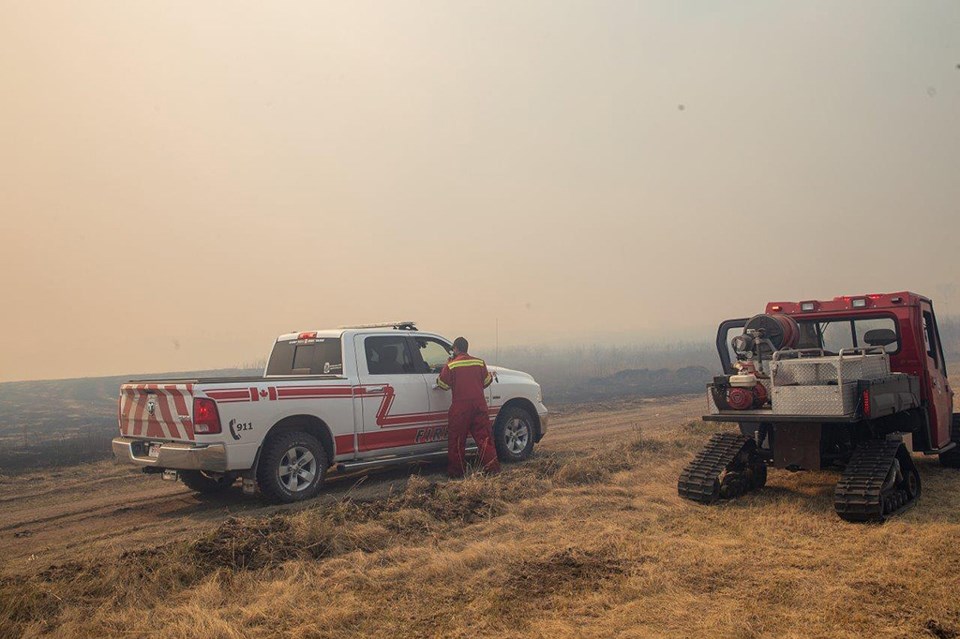THE BATTLEFORDS — Wildfires in Saskatchewan prompted Environment Canada to issue special weather statements on air quality and visibility due to smoke Thursday.
Areas included were the Île à la Crosse - Buffalo Narrows – Beauval area, the La Loche - Clearwater River Prov. Park - Cluff Lake area, the Meadow Lake - Big River - Green Lake – Pierceland area and the Battlefords - Unity - Maidstone - St. Walburg area. The statements for the last two ended Friday.
There are currently wildfires burning at La Loche and at Moosomin First Nation. Elders from Moosomin have been evacuated and all residents of La Loche are being evacuated to Regina. La Loche residents are being asked to register before they leave at the community hall if travelling by bus or at the Ducharme Elementary School if using their own vehicle. However, those travelling on their own are being asked to follow the buses when they leave the community and are being encouraged to use the buses provided.
According to Environment Canada, air quality and visibility due to wildfire smoke can fluctuate over short distances and can vary considerably from hour to hour.
Wildfire smoke can be harmful to everyone’s health even at low concentrations. Everyone can take action to reduce their exposure to wildfire smoke.
People with lung disease (such as asthma) or heart disease, older adults, children, pregnant people, and people who work outdoors are at higher risk of experiencing health effects caused by wildfire smoke. Speak with your health care provider about developing a management plan for wildfire smoke events and maintaining a supply of necessary medications at home and always carrying these medications with you during wildfire season.
Stop or reduce your activity level if breathing becomes uncomfortable or you or someone in your care feel unwell. Contact your health care provider or local health authority if you develop severe symptoms or need advice.
Check the Air Quality Health Index (AQHI) and monitor your symptoms. People respond differently to smoke. Mild irritation and discomfort are common, and usually disappear when the smoke clears. Drinking lots of water can help your body cope with the smoke.
If you have an HVAC system in your home, use the highest rated MERV filter for your system (ideally rated 13 or higher) and set the fan to recirculate air constantly. You can also use a portable High Efficiency Particulate Air (HEPA) air cleaner. Keep your doors and windows closed if the temperature in your home is comfortable.
Take a break from the smoke at a location in your community where you can find clean, cool air.
If you must spend time outdoors, a well-fitted respirator type mask (such as a NIOSH certified N95 or equivalent respirator) that does not allow air to pass through small openings between the mask and face, can help reduce your exposure to the fine particles in smoke. These fine particles generally pose the greatest risk to health. However, respirators do not reduce exposure to the gases in wildfire smoke. It is important to listen to your body and reduce or stop activities if you are experiencing symptoms.
Be sure to check on people in your care and those around you who may be more susceptible to smoke.
Reduce sources of indoor air pollution. If you can, avoid smoking or vaping indoors, burning incense and candles, frying foods, using wood stoves and vacuuming. Dust on indoor surfaces can be removed by wiping and wet mopping during a pollution episode.
If you experience any feelings of stress, anxiety, or depression, contact your mental health care provider for advice or visit https://www.wellnesstogether.ca/en-CA.
Call HealthLine 811 for advice on health risks, symptoms and precautions associated with air quality.




